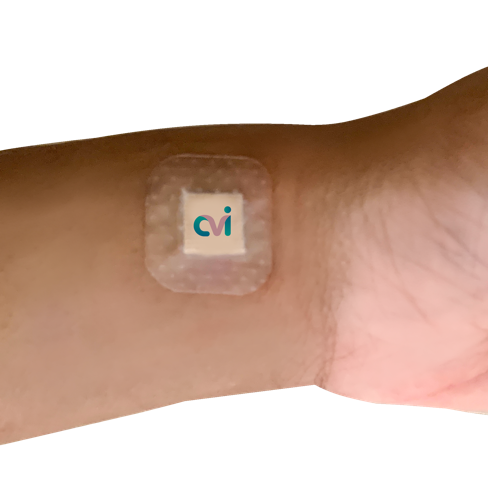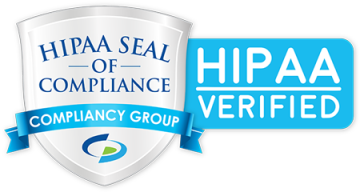Can your Fibroids Wait Until Menopause?
Around 50-70% of women experience fibroid growth in their life.1 Fibroids that are symptomatic can cause significant inconvenience to daily activities and some have to plan around their menstrual cycle. Many OBGYN tell patients close to menopause to wait it out as it is believed that fibroids shrink after 50 years of age. While there is some truth to this statement, there are some caveats.2
Do Fibroids Shrink after Menopause?
Fibroid growth is closely linked to estrogen levels in the body. The higher the estrogen levels in the body, the greater the growth of fibroids in the uterus.3
So, when women go through menopause, the estrogen levels in their bodies decrease and it is speculated that their fibroids stop growing.4 The key word is that they stop growing, not disappear.
Progesterone is the hormone responsible for cramps during the menstrual cycle.5 Fibroid camps can cause significant pain for some women but with the lack of progesterone during menopause, these symptoms can also improve.
It is true that in most cases, fibroids do stop growing after menopause. However, if your fibroids have been symptomatic, it is quite likely that not all of the symptoms will resolve once you have entered menopause. Large fibroids may remain the same in size, and if they calcify over time the bulk symptoms below may not resolve.6 Even worse, calcified fibroids are less likely to be responsive to non-surgical treatments such as the UFE procedure. The risk of waiting until menopause is calcification of fibroids, leaving only hysterectomy as a treatment option.
Fibroids left untreated in post-menopausal women can have the following symptoms:7
- Distended abdomen
- Pain in the lower back/legs
- Pain during sexual intercourse
- Constipation
- Bloating
- Pelvic pressure
- Urge to urinate due to pressure on the bladder
Do Fibroids Grow after Menopause?
One point to consider is that your fibroids may begin growing again if you are undergoing hormone therapy during menopause to prevent postmenopausal symptoms.8 This is because the estrogen replacement, as discussed above, is one of the key factors why fibroids grow in the first place. Many women require Hormone Replacement Therapy (HRT) to reduce postmenopausal symptoms however on the other end this tends to cause persistent or recurrent fibroid symptoms.9 Postmenopausal women on HRT with recurrent or persistent fibroid symptoms who wish to remain on HRT will be subject to hysterectomy.
Should I wait until Menopause?
You can wait until menopause; however, there is a risk of possible hysterectomy later in life. Fibroid shrinkage after menopause is unlikely but there are situations where fibroids can grow, or some symptoms don’t resolve. For women that are postmenopausal with fibroid symptoms the only treatment option at that point maybe a hysterectomy.
If you are close to menopause but avoiding treatment due to surgical risks, you need to be aware that non-surgical options exist. The UFE procedure is an effective non-surgical treatment that will take care of your fibroids and eliminate the risk of possible fibroid re-growth or persistent symptoms after menopause.10 However, if you wait beyond menopause there is a risk that your fibroids will calcify, and in this situation the only treatment option will be a hysterectomy.
Non-Surgical UFE Treatment
There is no guarantee that fibroids and their symptoms will resolve on their own after menopause. The UFE procedure is a great alternative to the wait and see what happens approach.
UFE or Uterine Fibroid Embolization refers to a non-surgical, minimally invasive procedure that relies on blocking the access of the blood vessels feeding the fibroids to the fibroids.11 UFE is safe and effective and should be considered no matter the size or number of fibroids you have before deciding on invasive surgery. Patients return home the same day without any hospital day and recover in 2 to 7 days, as opposed to 4 to 8 weeks with surgery. Recovery is fast and the risk of complications following UAE is significantly lower compared to hysterectomy.

Why California Fibroid Center?
At CVI, we provide devoted and specialized care for embolization. All clinical decisions are centered on the patient because CVI is owned and controlled by our physician, who is an embolization expert. The doctor has the freedom to spend as much time as needed for patient consultations and medical procedures. Clinical decisions are made based on what is best for you and your treatment, and not influenced by the interests of a profit-driven hedge fund company. The staff are highly trained and dedicated to the patient experience. This allows us to provide the best care and experience for our patients.
Women continue to be thrilled with the totality of their care experience facilitated by our patient-centered approach. Read more about our practice here.
Patient Centered. Dedicated. Comprehensive.

We are Here to Help
Request an appointment to meet with our fibroid specialist who will review your imaging, labs and history to determine if you are candidate for the procedure, and the outcomes you can expect. Each woman is an individual and should discuss the potential risks and benefits of fibroid embolization and other Treatments with our doctor to decide which option is best for her.
Appointments are available via an online video telehealth platform or in person at one of the offices in Los Angeles, Orange County or San Diego. Why should you choose us? Read here.
- Okolo S. Incidence, aetiology and epidemiology of uterine fibroids. Best practice & research Clinical obstetrics & gynaecology. 2008 Aug 1;22(4):571-88.
- King R, Overton C. Management of fibroids should be tailored to the patient. The Practitioner. 2011 Mar 1;255(1738):19-24.
- Borahay MA, Asoglu MR, Mas A, Adam S, Kilic GS, Al-Hendy A. Estrogen receptors and signaling in fibroids: Role in pathobiology and therapeutic implications. Reproductive sciences. 2017 Sep;24(9):1235-44.
- Reis FM, Bloise E, Ortiga-Carvalho TM. Hormones and pathogenesis of uterine fibroids. Best Practice & Research Clinical Obstetrics & Gynaecology. 2016 Jul 1;34:13-24.
- Kim JJ, Kurita T, Bulun SE. Progesterone action in endometrial cancer, endometriosis, uterine fibroids, and breast cancer. Endocrine reviews. 2013 Feb 1;34(1):130-62.
- Singh K, Prasad D, Pankaj S, Suman S, Kumar A, Choudhary V, Kumar M. Postmenopausal massive subserous calcified fibroid–a case report. Journal of Evolution of Medical and Dental Sciences. 2014 Mar 3;3(9):2255-8.
- Zimmermann A, Bernuit D, Gerlinger C, Schaefers M, Geppert K. Prevalence, symptoms and management of uterine fibroids: an international internet-based survey of 21,746 women. BMC women’s health. 2012 Dec;12(1):1-1.
- Yang CH, Lee JN, Hsu SC, Kuo CH, Tsai EM. Effect of hormone replacement therapy on uterine fibroids in postmenopausal women—a 3-year study. Maturitas. 2002 Sep 30;43(1):35-9.
- Sener AB, Seckin NC, Ozmen S, Gökmen O, Doğu N, Ekici E. The effects of hormone replacement therapy on uterine fibroids in postmenopausal women. Fertility and sterility. 1996 Feb 1;65(2):354-7.
- McLucas B, Adler L, Perrella R. Uterine fibroid embolization: nonsurgical treatment for symptomatic fibroids. Journal of the American College of Surgeons. 2001 Jan 1;192(1):95-105.
- Bradley LD. Uterine fibroid embolization: a viable alternative to hysterectomy. American journal of obstetrics and gynecology. 2009 Aug 1;201(2):127-35.









